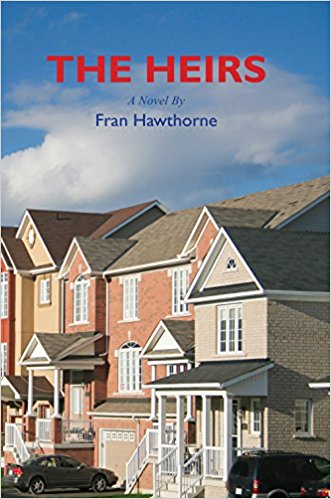
“The Heirs” Asks For How Many Generations Can Guilty Carry On?
YZM: This is your first novel; let’s talk about what it was like to make the leap from non-fiction to fiction.
FH: Actually, I leaped the other way first: Ever since I was a little girl, I’ve been writing “novels.” (Unpublished, of course.) When my college roommate suggested that I try writing for the school newspaper–The Daily Californian, at the University of California at Berkeley—I decided what the heck, I’d give it a shot. And I realized that I loved interviewing people and running around chasing news. Still, through the next decades of journalism, I always felt frustrated—and guilty—that I never seemed to have the time or energy for fiction, and I worried that it was becoming too easy to settle into nonfiction. When I finally pushed myself to leave that comfort zone—wow! It was so wonderful and liberating to be writing fiction again, creating my own characters and quotes.
YZM: What was the inspiration for the story?
FH: When my son was in first grade, he had a classmate whose parents were Polish—that is, Polish Catholics, born and raised in Poland after World War II. My father was also born in Poland, and he and his family, as Jews, were lucky to get out in November 1937, barely ahead of Hitler. So when I heard about my son’s classmate, I found myself with the same gut reaction that Eleanor has in The Heirs—reactions that a lot of Jewish friends tell me they instinctively feel, fairly or not, when they meet non-Jews from Germany or Poland or Ukraine or Lithuania. What did your parents and grandparents do during the Holocaust?
YZM: Did setting it in the somewhat recent past serve a particular need?
FH: Yes, the time frame satisfied several plot needs. Fifty or so years after World War II would put Rose in her early seventies—a reasonable age to be a grandmother and vulnerable to broken bones, but not so old and frail that she might forget what had happened in Poland, or that Eleanor would hesitate to press her too hard. I also thought the fear of Y2K (remember that?), which permeated the U.S. in autumn 1999, provided a good background of looming catastrophe, somewhat akin to the shadow over Europe in the summer of 1939. Of course, as a plot device, it helped that, in 1999, Eleanor couldn’t have Googled the Wysockis or her mother’s hometown.
Having said all that, after the white nationalist rally in Charlottesville last summer, I reread some of the dialogue I had written. For instance, at one point Eleanor’s friend Susan muses about how “Klan parents, likewise, they’re going to raise new generations of little racists.” And I thought: This book could have been set today.
YZM: The novel deals primarily with the subject of guilt—both personal and collective; can you elaborate?
FH: These are the sorts of questions that confront the U.S. in considering reparations for slavery, or that countries like South Africa and Argentina pondered when they established Truth Commissions: Even after the actual people who committed mass acts of racism and other abuse are themselves dead, what sort of responsibility remains with their descendants? For how many generations? And what about the far larger group of ordinary people who “never saw anything?” How fair is it to demand that they should have challenged the accepted ethics of their time? These tough questions may seem directly relevant to only a few people, but they actually affect all of us, because we’re a community together, and we must remember our shared history. If you were Eleanor, how would you feel when you met Maria Wysocki?
YZM: Are you working on another novel? Or are you going to return to non-fiction?
FH: I’m definitely working on another novel! I’ve just finished the ninth (and I hope almost-last) major revision. My career goal is to spend about 75% of my time writing novels, and the rest writing just a handful of nonfiction books and articles that really fascinate me.
The views and opinions expressed in this article are the author’s own and do not necessarily reflect those of Lilith Magazine.



